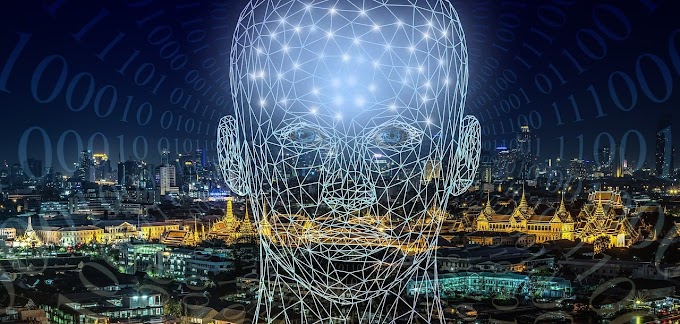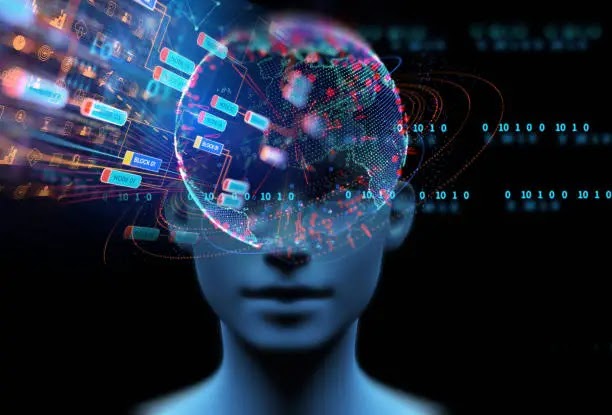Unlocking New Frontiers
AI's Unprecedented Impact on the Healthcare Industry
Introduction
In recent years, the healthcare industry has been undergoing a profound digital transformation, with artificial intelligence (AI) emerging as a driving force behind this revolution. AI has the potential to reshape healthcare in ways previously unimaginable, from improving diagnostic accuracy to accelerating drug discovery. In this blog, we will delve into the role of AI in healthcare, exploring its applications, ethical considerations, success stories, and the future trends that promise to revolutionize patient care.
Understanding the Role of AI in Healthcare
A. Defining Artificial Intelligence
At its core, artificial intelligence refers to the ability of machines to mimic human cognitive functions. In healthcare, AI excels at processing vast amounts of complex data quickly and accurately, a task that is essential for various applications.
B. AI Applications in Healthcare
1. Diagnosis and Treatment
AI's role in healthcare begins with improving diagnostic accuracy. With advanced algorithms and machine learning models, AI can analyze medical images, patient records, and genetic data, aiding healthcare professionals in making more precise diagnoses. Moreover, AI-driven treatment planning and personalized medicine are ushering in an era of customized care tailored to each patient's unique needs.
2. Drug Discovery and Development
The pharmaceutical industry is benefiting significantly from AI. By harnessing AI's computational power, researchers can analyze vast datasets and simulate drug interactions, significantly expediting the drug discovery process. Clinical trials are also becoming more efficient through AI-driven patient recruitment and monitoring.
3. Patient Monitoring and Care
AI-enabled remote patient monitoring systems are transforming how patients receive care. These systems collect real-time data from patients via smart healthcare devices and wearables, allowing for proactive healthcare interventions and reducing hospital readmissions.
C. Ethical and Privacy Considerations
As AI's role in healthcare expands, it's crucial to address ethical concerns and data privacy issues. Safeguarding sensitive patient information, ensuring unbiased algorithms, and maintaining transparency in AI-driven decision-making are paramount to responsible AI implementation in healthcare.
Unleashing AI's Potential in Healthcare
A. Overcoming Challenges and Barriers
1. Data Accessibility and Integration
Accessing and integrating diverse healthcare data sources pose significant challenges. Solutions involve effective data sharing protocols, interoperability standards, and secure data storage practices.
2. Organizational and Cultural Transformation
Healthcare organizations must overcome resistance to change and cultivate a culture supportive of AI adoption. Strategies include comprehensive staff training, leadership buy-in, and fostering innovation.
B. Collaborations and Partnerships
1. Bridging Gaps between Healthcare and Technology Sectors
Collaboration between healthcare providers and technology companies is essential to develop effective AI-driven solutions. These partnerships can lead to mutually beneficial advancements in patient care.
2. Engaging Patients and Healthcare Professionals
Incorporating feedback from patients and healthcare providers in AI development ensures user-friendly interfaces and builds trust. This patient-centered approach is crucial to AI's success in healthcare.
C. Regulatory and Policy Frameworks
1. Regulating AI in Healthcare
Navigating the regulatory landscape for AI in healthcare is complex. Balancing innovation with patient safety requires the development of appropriate regulations that encourage responsible AI use.
2. Privacy and Consent
Ensuring patient data privacy and consent are fundamental. Regulatory requirements for data anonymization and protection of patient rights must be upheld.
Success Stories: AI Transforming Healthcare
A. Case Study 1: AI-Assisted Diagnosis in Radiology
Real-world examples demonstrate how AI has improved diagnostic accuracy in radiology departments, reducing the workload on physicians and enhancing patient care.
B. Case Study 2: AI-Driven Precision Medicine
Successful implementation of AI in precision medicine has led to personalized treatment plans, improved patient outcomes, and enhanced healthcare delivery.
C. Case Study 3: AI-Supported Clinical Decision Support Systems
AI-powered decision support tools are aiding healthcare professionals in making more informed decisions, ultimately improving patient outcomes.
Future Prospects and Emerging Trends
A. AI Integrated Healthcare Systems
The future holds the promise of seamlessly integrating AI into healthcare systems, resulting in improved efficiency, patient outcomes, and potential challenges that need to be addressed.
B. Augmented Intelligence: Collaboration between AI and Healthcare Professionals
Human-AI collaboration in healthcare is essential. Understanding the opportunities and limitations of augmented intelligence will be pivotal in healthcare's AI-driven future.
C. AI Ethics and Governance
1. Explainable AI in Healthcare
Transparency and interpretability in AI algorithms are essential to maintain accountability and trustworthiness in AI-driven healthcare decision-making.
2. Ensuring Fairness and Bias Mitigation
Addressing bias in AI algorithms and ensuring fairness in healthcare AI systems are critical. Guiding principles must be established to eliminate discrimination.
Conclusion
In conclusion, artificial intelligence is poised to revolutionize the healthcare industry, offering unprecedented opportunities for improving patient care, outcomes, and efficiency. While challenges exist, responsible implementation, ethical considerations, and collaboration between healthcare professionals and technology companies will be key to unlocking AI's full potential in healthcare.
Frequently Asked Questions
A. Is AI replacing healthcare professionals?
No, AI is not replacing healthcare professionals but serving as a valuable tool to enhance their capabilities and improve patient care.
B. How does AI protect patient data privacy?
AI implementation in healthcare involves robust data privacy measures, including anonymization, encryption, and adherence to regulatory requirements.
C. What challenges does AI face in healthcare adoption?
AI adoption in healthcare faces challenges related to data integration, resistance to change, and regulatory hurdles.
D. What are the limitations of AI in healthcare?
AI limitations include the potential for bias in algorithms, the need for continuous monitoring, and the requirement for skilled personnel to operate and interpret AI systems.
E. How can patients benefit from AI in healthcare?
Patients can benefit from AI through improved diagnostic accuracy, personalized treatment plans, remote monitoring, and quicker access to medical services.
F. What policy changes are needed to support AI in healthcare?
Policy changes should focus on creating a regulatory framework that balances innovation and patient safety, ensures data privacy, and promotes responsible AI use in healthcare.
G. How can healthcare professionals prepare for AI integration?
Healthcare professionals can prepare for AI integration through training, embracing a culture of innovation, and actively participating in AI development and implementation processes.






